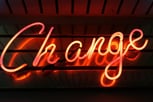There are many treatment facilities, addiction specialists and recovery practitioners who believe the 12-Step program is the only way to go. But, if so-called holy wars have taught us anything, it’s that a single way of doing things doesn’t work for everyone. And, just because people are willing to fight for their chosen way, that doesn’t mean someone else is going to accept and embrace it, or even benefit from it. More importantly, to force it will likely end in oppression and destruction.
The fact is, we are all different. Our cognitions, feelings, and lifestyles are as diverse as our cultures, languages, races, and religions. Therefore, we simply do not adhere to or align with the same methods of healing and recovery.
In fact, what may be a miraculous recovery program for one individual could prove disastrous for another.
For instance, the 12-Step program is based on the Big Book, which was written by two white American Protestant males. That fact doesn’t discount the literature or its relevance and proven success in helping those who are struggling with addiction. However, it does point to a clear lack of perspective or cultural consideration.
12-Step Culture
When gender and culture are not accounted for, the 12-Step program can inadvertently do more harm than good. The unintended yet further disempowering nature of the language – i.e., powerless over one's addiction – as well as any religious and gender- or culture-specific wording or context can trigger core issues and, eventually, relapse.
Additionally, some individuals are turned off by the presumed cult-like functionality of 12-Step groups. Though the repetitiveness, rules and regulations, religious nature, and ritualistic components of some meetings are necessary for the successful recovery of some, these are potential triggers for those who have been victims of religious abuse. And, of course, non-believers are certainly quick to walk away.
As such, alternative recovery programs have been devised to accommodate those who are going the non-12-Step route.
Alternative Program
Some of these programs include spirituality – a component of the self – but not religion. A few are non-religious and non-spiritual. But, most importantly, the various options and alternatives to 12-Step recovery account for gender, culture and other categories of diversity. In fact, in some cases, individuals are encouraged to simply work with a recovery coach to create a customized program specific to their needs.
In these instances, it is necessary to do your research to ensure the program is legitimate and professional. Unfortunately, there are scams and con artists in every aspect of life. Recovery is no exception. And, with alternative programs, hypervigilance and research with regard to relapse-versus-success rate are certainly needed.
SMART Recovery, Life-Ring, Secular Organizations for Sobriety, and Rational Recovery are just a handful of the alternative recovery programs to look into if you find that 12-Step programs are not for you. Additionally, there are groups and programs specific to atheists, agnostics, women, and various cultures.
Regardless of which program you choose, know that your holistic health and successful recovery is all that matters; not the path in which you choose to acquire it.
|
If you or someone you know is seeking help from addiction, please visit our directory of treatment centers or call 800-772-8219 to speak to a treatment specialist. |








